AMPHETAMINE EXTENDED-RELEASE DISINTEGRATING - ORAL
PHONETIC PRONUNCIATION: (am-FET-a-meen)
COMMON BRAND NAME(S): Adzenys XR-ODT
GENERIC NAME(S): amphetamine
Uses
USES: This medication is used to treat attention deficit hyperactivity disorder - ADHD. It works by changing the amounts of certain natural substances in the brain. Amphetamine belongs to a class of drugs known as stimulants. It can help increase your ability to pay attention, stay focused on an activity, and control behavior problems. It may also help you to organize your tasks and improve listening skills.
How to use AMPHETAMINE EXTENDED-RELEASE DISINTEGRATING - ORAL
HOW TO USE: Read the Medication Guide provided by your pharmacist before you start taking amphetamine and each time you get a refill. If you have any questions, ask your doctor or pharmacist. Take this medication by mouth with or without food as directed by your doctor, usually once daily in the morning. Taking this medication after noon may cause trouble sleeping (insomnia). Keep the medication in the original package until you are ready to take a dose. Dry your hands before handling the medication. Peel back the foil layer of the blister pack to remove a tablet. Do not push the tablet through the foil because it may get damaged. Place the tablet on your tongue, allow it to dissolve, and swallow with your saliva. You do not need to take this medication with water or other liquid. Do not crush or chew the tablet. The dosage is based on your medical condition and response to treatment. Your doctor may adjust your dose to find the dose that is best for you. Follow your doctor's instructions carefully. Use this medication regularly to get the most benefit from it. To help you remember, take it at the same time each day. During treatment, your doctor may sometimes stop the medication for a short time to see if the medication is still needed. This medication may cause withdrawal reactions, especially if it has been used regularly for a long time or in high doses. In such cases, withdrawal symptoms (including severe tiredness, sleep problems, mental/mood changes such as depression) may occur if you suddenly stop using this medication. To prevent withdrawal reactions, your doctor may reduce your dose gradually. Consult your doctor or pharmacist for more details, and report any withdrawal reactions right away. When this medication is used for a long time, it may not work as well. Talk with your doctor if this medication stops working well. Though it helps many people, this medication may sometimes cause addiction. This risk may be higher if you have a substance use disorder (such as overuse of or addiction to drugs/alcohol). Take this medication exactly as prescribed to lower the risk of addiction. Ask your doctor or pharmacist for more details. Tell your doctor if your condition does not get better or if it gets worse.
Side Effects
Precautions
Interactions
Overdose
Images
Reviews
Faq for AMPHETAMINE EXTENDED-RELEASE DISINTEGRATING - ORAL
Amphetamine XR is a prescription medication used to treat attention deficit hyperactivity disorder (ADHD). It belongs to a class of drugs called central nervous system stimulants.
Amphetamine XR works by increasing the activity of certain chemicals in the brain, which helps to improve attention, focus, and impulse control.
The dosage of Amphetamine XR varies depending on several factors, including age, weight, and the severity of ADHD symptoms. It is important to follow the instructions provided by your healthcare professional.
Common side effects of Amphetamine XR may include decreased appetite, trouble sleeping, dry mouth, headache, and stomach upset. However, these side effects usually improve with time.
Yes, there are some serious side effects associated with Amphetamine XR that may require immediate medical attention. These include chest pain, rapid heartbeat, shortness of breath, mood changes, hallucinations, and uncontrolled movements.
Amphetamine XR has a potential for abuse and addiction, especially if it is misused or taken in higher doses than prescribed. It is important to follow the prescribed dosage and not share the medication with others.
It is important to inform your healthcare professional about any pre-existing medical conditions, allergies, or medications you are currently taking before starting Amphetamine XR. Additionally, it is crucial to avoid alcohol and grapefruit juice while taking this medication.
It is crucial to discuss the risks and benefits with your healthcare professional before taking Amphetamine XR during pregnancy or while breastfeeding. This medication can pass into breast milk and may have adverse effects on the infant.
The effect of Amphetamine XR can usually be felt within a few days of starting the medication. However, the full benefits may take several weeks or more to be realized.
Warning
WARNING: Misuse or abuse of amphetamines may cause serious (possibly fatal) heart and blood pressure problems. Amphetamine-type medications can be habit-forming. Use only as directed. If you use this drug for a long time, you may become dependent on it and may have withdrawal symptoms after stopping the drug. Consult your doctor or pharmacist for more details. (See also How to Use section.)
Disclaimer
IMPORTANT: HOW TO USE THIS INFORMATION: This is a summary and does NOT have all possible information about this product. This information does not assure that this product is safe, effective, or appropriate for you. This information is not individual medical advice and does not substitute for the advice of your health care professional. Always ask your health care professional for complete information about this product and your specific health needs.
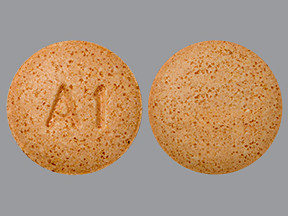
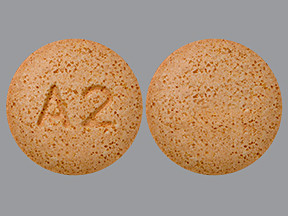
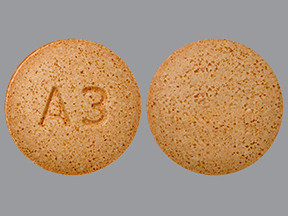
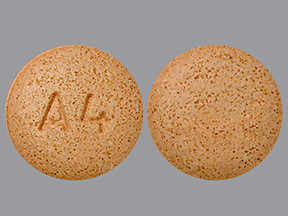
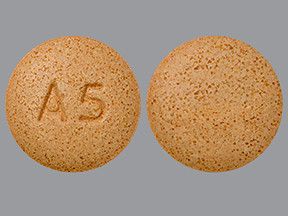
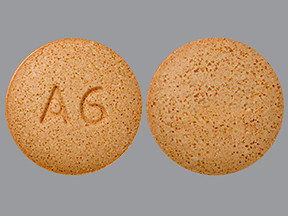
No Reviews Yet